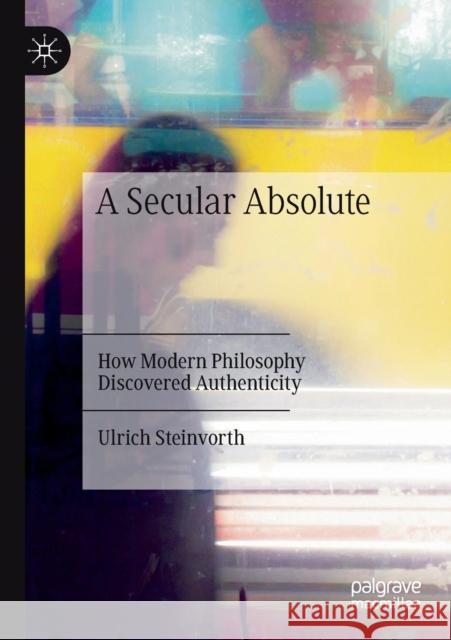A Secular Absolute: How Modern Philosophy Discovered Authenticity » książka



A Secular Absolute: How Modern Philosophy Discovered Authenticity
ISBN-13: 9783030350383 / Angielski / Miękka / 2021 / 278 str.
A Secular Absolute: How Modern Philosophy Discovered Authenticity
ISBN-13: 9783030350383 / Angielski / Miękka / 2021 / 278 str.
(netto: 325,85 VAT: 5%)
Najniższa cena z 30 dni: 327,68
ok. 16-18 dni roboczych.
Darmowa dostawa!
Chapter I: Introduction
1 Absolutes and naturalism
2 Why Kant, Hegel and Heidegger?
Chapter II: Kant’s Vernünftigkeit
3 The Categorical Imperative
4 Teleology
5 Kant on Copernicus
6 The transcendental deduction of a priori concepts
7 A conception of reason acceptable for both idealists and natuarlists
8 A conception of free will acceptable also for naturalists9 Kant’s double heritage
Chapter III: Hegel’s Sittlichkeit
10 Historicizing mind and morality
11 The development of mind and morality
12 Authenticity and militarism
13 The spheres of absolute and objective mind14 Sittlichkeit in Marx
15 Sittlichkeit in Weber
16 Hegel’s absolute
Chapter IV: Heidegger’s Eigentlichkeit
17 A first look at Heidegger’s authenticity
18 Nothing and authenticity
19 The voice of conscience
20 Science and philosophical method
21 Authenticity in antiquity and Montaigne
22 Rousseau and Kierkegaard
23 Another look at Heidegger’s authenticity
Chapter V: Reflections
24 Absolutes and transcendental justification
25 Moral and metaphysical norms
26 Weber spheres and the origin of rationality
27 World-exploration vs self-realization and world-constitution
28 Authenticity vs pleasure and power
29 Public concerns
30 A metaphysical argument for authenticity and justice
Ulrich Steinvorth is Professor Emeritus at the University of Hamburg, Germany.
Premodern societies believed in something sacred that obliged unconditionally. Modern societies rely on fallible science. Do they also need something absolute, a secular sacred? Steinvorth analyzes the writings of modern philosophers who claim that there is an absolute norm: the norm to be rational and authentic. In his view, their claim is true if it is reinterpreted. The norm is not moral, as it was thought to be, but metaphysical, and authenticity is not self-realization, but doing things for their own sake.
In discussing the pros and cons of philosophical claims on absolutes, this book spreads out the rich pool of philosophical ideas and clarifies urgent contemporary questions about what can be demanded with universal validity. It argues this is not only the principle of justice, not to harm, but also a metaphysical principle by which to find meaning in life. Moreover, it points to some consequences this principle has in politics.
1997-2026 DolnySlask.com Agencja Internetowa
KrainaKsiazek.PL - Księgarnia Internetowa









